
Allan Pinkerton was a Scottish-American cooper, abolitionist, detective, and spy, best known for creating the Pinkerton National Detective Agency in the United States and his claim to have foiled a plot in 1861 to assassinate president-elect Abraham Lincoln. During the Civil War, he provided the Union Army – specifically General George B. McClellan of the Army of the Potomac – with military intelligence, including extremely inaccurate enemy troop strength numbers. After the war, his agents played a significant role as strikebreakers – in particular during the Great Railroad Strike of 1877 – a role that Pinkerton men would continue to play after the death of their founder.

Rose O'Neal Greenhow was a famous Confederate spy during the American Civil War. A socialite in Washington, D.C., during the period before the war, she moved in important political circles and cultivated friendships with presidents, generals, senators, and high-ranking military officers including John C. Calhoun and James Buchanan. She used her connections to pass along key military information to the Confederacy at the start of the war. In early 1861, she was given control of a pro-Southern spy network in Washington, D.C., by her handler, Thomas Jordan, then a captain in the Confederate Army. She was credited by Jefferson Davis, the Confederate president, with ensuring the South's victory at the First Battle of Bull Run in late July 1861.
Tactical or battlefield intelligence became vital to both sides in the field during the American Civil War. Units of spies and scouts reported directly to the commanders of armies in the field, providing details on troop movements and strengths. The distinction between spies and scouts was one that had life or death consequences: if a suspect was seized while in disguise and not in his army's uniform, he was often sentenced to be hanged. A spy named Will Talbot, a member of the 35th Battalion, Virginia Cavalry, was left behind in Gettysburg after his battalion had passed through the borough on June 26–27, 1863. He was captured, taken to Emmitsburg, Maryland, and executed on orders of Brig. Gen. John Buford.

Maria Isabella Boyd, best known as Belle Boyd was a Confederate spy in the American Civil War. She operated from her father's hotel in Front Royal, Virginia, and provided valuable information to Confederate General Stonewall Jackson in 1862.

Pauline Cushman was an American actress and a spy for the Union Army during the American Civil War. She is considered one of the most successful Civil War spies.

Douglass Rupert Dumbrille was a Canadian actor who appeared regularly in films from the early 1930s.
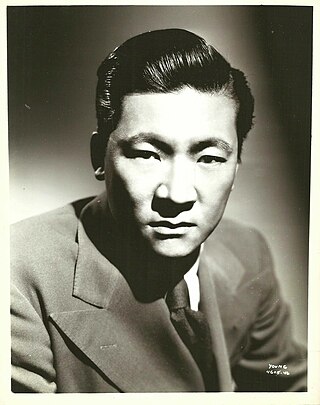
Victor Sen Young was an American character actor, best known for playing Jimmy Chan in the Charlie Chan films and Hop Sing in the western series Bonanza. He was born in San Francisco, California to Gum Yung Sen and his first wife, both immigrants from China.
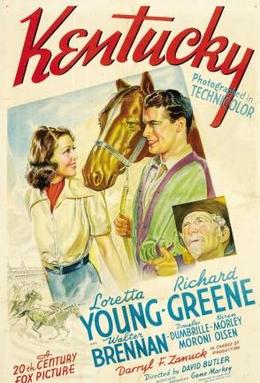
Kentucky is a 1938 American drama sports film with Loretta Young, Richard Greene, and Walter Brennan. It was directed by David Butler. It is a Romeo and Juliet story of lovers Jack and Sally, set amidst Kentucky horseracing, in which a family feud goes back to the Civil War and is kept alive by Sally's Uncle Peter.

The Great Locomotive Chase is a 1956 American adventure western film produced by Walt Disney Productions, based on the Great Locomotive Chase that occurred in 1862 during the American Civil War. Filmed in CinemaScope and in color, the film stars Fess Parker as James J. Andrews, the leader of a group of Union soldiers from various Ohio regiments who volunteered to go behind Confederate lines in civilian clothes, steal a Confederate train north of Atlanta, and drive it back to Union lines in Tennessee, tearing up railroad tracks and destroying bridges and telegraph lines along the way.

San Francisco National Cemetery is a United States national cemetery, located in the Presidio of San Francisco, California. Because of the name and location, it is frequently confused with Golden Gate National Cemetery, a few miles south of the city.
Black Dispatches was a common term used among Union military men in the American Civil War for intelligence on Confederate forces provided by African Americans, who often were slaves aiding the Union forces. They knew the terrain and could move within many areas without being noticed; their information represented a prolific and productive category of intelligence obtained and acted on by Union forces throughout the Civil War.

Uncivil Warriors is a 1935 short subject directed by Del Lord starring American slapstick comedy team The Three Stooges. It is the eighth entry in the series released by Columbia Pictures starring the comedians, who released 190 shorts for the studio between 1934 and 1959.

George J. Lewis was a Mexican-born actor who appeared in many films and eventually TV series from the 1920s through the 1960s, usually specializing in westerns. He is probably best known for playing Don Alejandro de la Vega, who was Don Diego de la Vega's father in the 1950s Disney television series Zorro. Lewis co-starred in Zorro's Black Whip and had a minor role in Ghost of Zorro before starring as Don Alejandro in the Disney series.
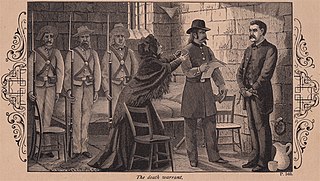
Hattie Lawton, also known as Hattie H. Lawton, Hattie Lewis, and Hattie Lewis Lawton was an American detective, who worked for Allan Pinkerton, of the Pinkerton Detective Agency. Lawton may have been born around 1837, although most details of her life, before and after the American Civil War, are unknown. "[Hattie] Lawton was part of Pinkerton's Female Detective Bureau, formed in 1860 to 'worm out secrets' by means unavailable to male detectives."
Hands Up! is a 1926 American silent comedy film directed by Clarence Badger, co-written by Monte Brice and Lloyd Corrigan, and starring Raymond Griffith, one of the great silent movie comedians. The film features fictional incidents involving actual historical figures such as Abraham Lincoln, Brigham Young, and Sitting Bull.
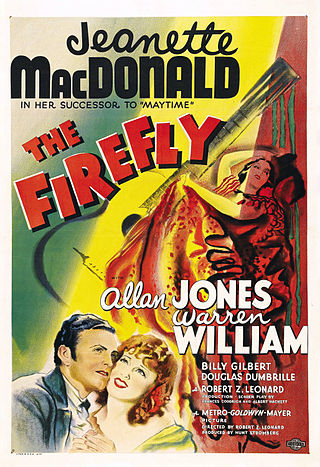
The Firefly is a 1937 American historical musical film directed by Robert Z. Leonard and starring Jeanette MacDonald, Allan Jones and Warren William. The film is an adaptation of the operetta of the same name by composer Rudolf Friml and librettist Otto A. Harbach that premiered on Broadway in 1912. The film used nearly all of the music from the operetta but jettisoned the plot in favor of a new storyline set in Spain during the time of the Emperor Napoleon I. It added a new song, "The Donkey Serenade", which became extremely popular, as was one of the Friml songs, "Giannina Mia". The original release prints of the film were elaborately tinted with Sepia-Blue, Sepia-Orange and Sepia-Blue-Pink.
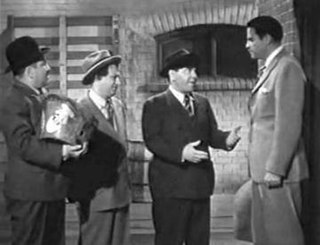
Robert Kellard, aka Robert Stevens, was an American actor who appeared in over 60 films between 1937 and 1951.
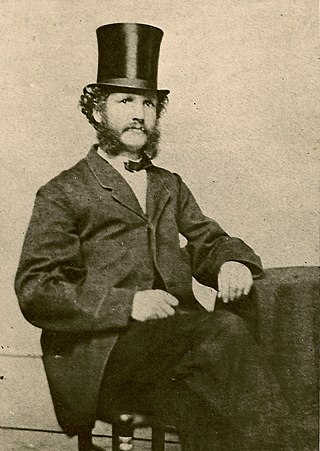
Pryce Lewis was an operative of the Pinkerton Detective Agency and Union spy during the American Civil War. His activities in Charleston, Virginia and the surrounding area heavily assisted the Union Army during the early years of the war. Lewis was later captured and played a part in the trial and execution of fellow agent Timothy Webster.














